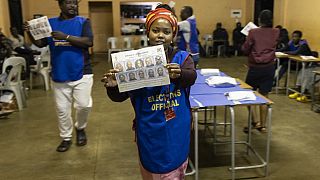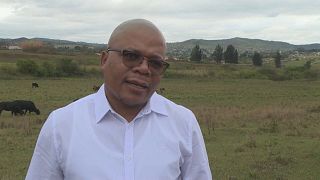Eswatini
Voters in the small African kingdom of eSwatini, formally known as Swaziland on Friday went to the polls to cast their votes.
The country, one of the last absolute monarchies on the planet, is expected to elect deputies in an election described by the opposition as a “farce” due to the absence of political parties.
Candidates for the 59 positions are to run on a personal basis and not under the label of a party.
Political organizations were banned in this southern African country since 2005 and are still not allowed to participate in elections.
“Elections are a competition between political parties. But here, we are witnessing a non-election, a system of nomination by the royalists. If you participate, you cannot defend your political ideas,” said Alvit Dlamini, head of the Ngwane National Liberatory Congress (NNLG), the oldest party in eSwatini or ex-Swaziland,
In reality, Parliament and the government are under the orders of King Mswati III, who has been in power since 1986.
The lower house, is composed of 69 members, 59 elected and 10 appointed by the king, the house cannot pass a law that has not received approval from the king.
“The elections in the eSwatini are unique,” admits its Vice-President Pholile Dlamini, who talks about “monarchical democracy”.
In the first round of this year’s election for seats in the House of Assembly held on 24 August 2018, 156,983 people voted of the 600,000 the Elections and Boundaries Commission (EBC) said were eligible). Compared to the 251,278 people who voted in the final round of elections in 2013 and 189,559 who voted in 2008.













Go to video
South Sudan's main opposition party in crisis after government minister named as interim chairman
04:21
Ivory Coast opposition parties form coalition ahead of presidential poll
Go to video
Britain's opposition Conservative Party elects new leader
01:45
Inmates register to vote in South Africa's upcoming elections
01:32
Burundi: thousands celebrate ‘Imbonerakure day’
Go to video
Elon Musk to step down as head of Twitter ?